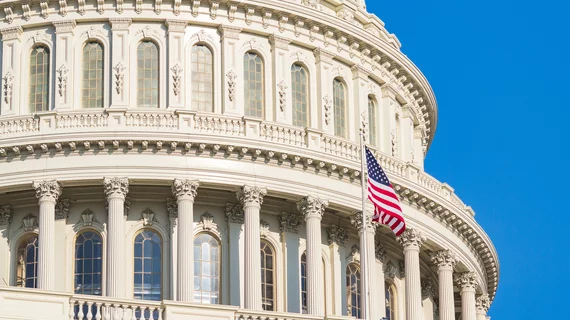Interventional radiology ranks among the most well-compensated specialties but lags in funding for political advocacy compared to other medical fields. Stakeholders must better engage IR physicians in the legislative process if the specialty is to survive in a value-based future.
Over the past 12 years, the Society of Interventional Radiology Political Action Committee (SIRPAC) has taken home about $600,000 in contributions, placing the specialty second to last among 27 top medical PACs. That figure also makes up less than 1% of the nearly $130 million donated to healthcare PACS this past decade.
So where’s the disconnect? Raymond Liu, MD, associate professor at Massachusetts General Hospital/ Harvard Medical School, and colleagues say more needs to be done to ensure individuals are aware of the legislative process and how it impacts their careers. This is particularly true as the field is expected to see a decline in reimbursement due to changes in the Medicare Physician Fee Schedule.
“Without a robust voice to advocate for its interests, IR is positioned to experience significant financial headwinds in a challenging economic environment,” Liu and colleagues wrote Sunday in the Journal of Vascular and Interventional Radiology.
In their letter to the editor, Liu et al. detailed the results of a seven-question survey sent to alumni of a SIRPAC-backed program that introduces IR physicians to political advocacy, formally known as the Grassroots Leadership Program. Among its 52 alumni, 22 (42%) responded to the survey, an admittedly small sample size, the authors noted.
Despite this limitation, all respondents said the program gave them a better understanding of the legislative process and 91% indicated they were more likely to talk to their peers about SIRPAC’s importance, participate in advocacy and promote donations to the PAC. And 86% said they were more likely to donate after attending the leadership program.
The findings should underscore the idea that if SIR members are aware of the legislative process and how advocacy can help their profession, the more likely they are to donate.
“The results of this survey provide an avenue by which a stronger political voice may be achieved through concerted programming in helping individuals understand the relevance of political advocacy and the legislative process in the field in which they are employed,” the authors concluded.

